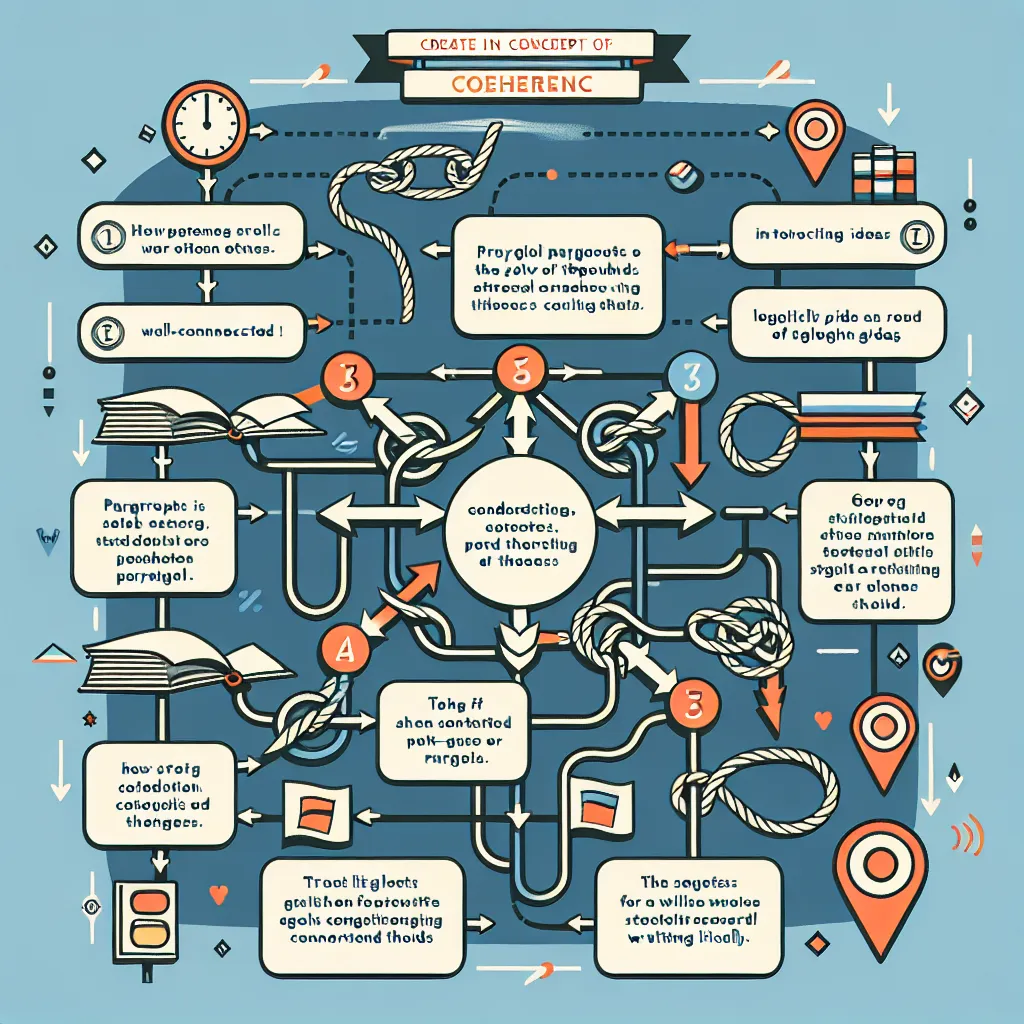Are you preparing for the IELTS Writing test and looking to enhance your essay structure? Mastering coherence and cohesion is crucial for achieving a high band score. This comprehensive guide will provide you with effective strategies to improve your writing skills and create well-organized, flowing essays that impress IELTS examiners.
Understanding Coherence and Cohesion in IELTS Writing
Before diving into improvement strategies, it’s essential to understand what coherence and cohesion mean in the context of IELTS Writing.
What is Coherence?
Coherence refers to the logical flow of ideas in your writing. A coherent essay presents information in a clear, organized manner that is easy for the reader to follow. It ensures that each paragraph connects smoothly to the next, creating a unified piece of writing.
What is Cohesion?
Cohesion, on the other hand, involves the use of language devices to connect ideas within and between sentences and paragraphs. These devices include transitional phrases, pronouns, and lexical repetition, which help to create a seamless flow of information throughout your essay.

Strategies to Improve Coherence in IELTS Writing
-
Plan Your Essay Structure
- Before you start writing, take a few minutes to outline your essay.
- Decide on your main ideas and the order in which you’ll present them.
- This planning stage will help ensure a logical progression of ideas.
-
Use Clear Topic Sentences
- Begin each paragraph with a clear topic sentence that introduces the main idea.
- This helps the reader understand what the paragraph is about and how it relates to the overall essay topic.
-
Maintain Paragraph Unity
- Keep each paragraph focused on a single main idea.
- Ensure all sentences within the paragraph support and develop that idea.
-
Create Logical Connections
- Make sure there’s a clear relationship between paragraphs.
- Use transitional phrases to show how ideas relate to one another.
-
Use Examples and Explanations
- Support your main points with relevant examples or explanations.
- This helps clarify your ideas and makes your writing more coherent.
Techniques to Enhance Cohesion in IELTS Writing
-
Use Transitional Phrases
- Employ words and phrases like “however,” “moreover,” “in contrast,” and “as a result” to show relationships between ideas.
- These help guide the reader through your argument.
-
Utilize Pronoun Reference
- Use pronouns (he, she, it, they) to refer back to previously mentioned nouns.
- This creates connections between sentences and reduces repetition.
-
Apply Lexical Cohesion
- Use synonyms, antonyms, and related words to create links between ideas.
- This technique helps to reinforce your main points and create a cohesive text.
-
Implement Parallel Structures
- Use similar grammatical structures for related ideas.
- This creates a rhythm in your writing and makes it easier to read.
-
Employ Ellipsis
- Omit words that are understood from context to avoid unnecessary repetition.
- This technique can make your writing more concise and cohesive.
Common Mistakes to Avoid
-
Overusing Transition Words
- While transition words are important, using too many can make your writing feel forced.
- Use them naturally and only when necessary.
-
Lack of Variation in Sentence Structure
- Varying your sentence structure keeps your writing engaging.
- Mix short and long sentences, and use different types of sentences (simple, compound, complex).
-
Irrelevant Information
- Stay focused on the topic and avoid including information that doesn’t support your main ideas.
- Irrelevant details can disrupt the coherence of your essay.
-
Abrupt Topic Changes
- Ensure smooth transitions between topics.
- Avoid sudden shifts that can confuse the reader.
-
Inconsistent Use of Tenses
- Maintain consistent tense usage throughout your essay.
- Sudden tense changes can disrupt cohesion.
Practical Exercises to Improve Coherence and Cohesion
-
Paragraph Ordering Exercise
- Take a jumbled essay and try to put the paragraphs in the correct order.
- This helps you understand logical progression of ideas.
-
Transition Word Matching
- Practice matching appropriate transition words to sentences or paragraphs.
- This improves your ability to use cohesive devices effectively.
-
Topic Sentence Creation
- Given a set of supporting sentences, practice writing appropriate topic sentences.
- This enhances your skill in creating coherent paragraphs.
-
Pronoun Reference Practice
- Identify and correct incorrect pronoun usage in sample texts.
- This improves your ability to use pronouns for cohesion.
-
Essay Analysis
- Read high-scoring IELTS essays and identify coherence and cohesion techniques used.
- This helps you understand how to apply these techniques in your own writing.
Next Steps for IELTS Writing Success
-
Practice Regularly
- Set aside time each day to practice writing essays.
- Focus on implementing the coherence and cohesion techniques you’ve learned.
-
Seek Feedback
- Have a teacher or experienced IELTS tutor review your essays.
- Pay attention to their comments on your essay structure and flow.
-
Read Widely
- Expose yourself to well-written articles and essays.
- Analyze how professional writers create coherent and cohesive texts.
-
Time Yourself
- Practice writing essays within the IELTS time limit.
- This helps you apply coherence and cohesion techniques under pressure.
-
Review and Revise
- After writing an essay, take time to review and revise it.
- Focus on improving the logical flow and connections between ideas.
By implementing these strategies and consistently practicing, you’ll significantly improve the coherence and cohesion in your IELTS Writing tasks. Remember, developing these skills takes time and effort, but the results will be reflected in your improved band scores and overall writing quality.
Keep practicing, stay focused on your goals, and don’t hesitate to seek help when needed. With dedication and the right approach, you’ll be well on your way to achieving your desired IELTS Writing score. Good luck with your IELTS preparation!